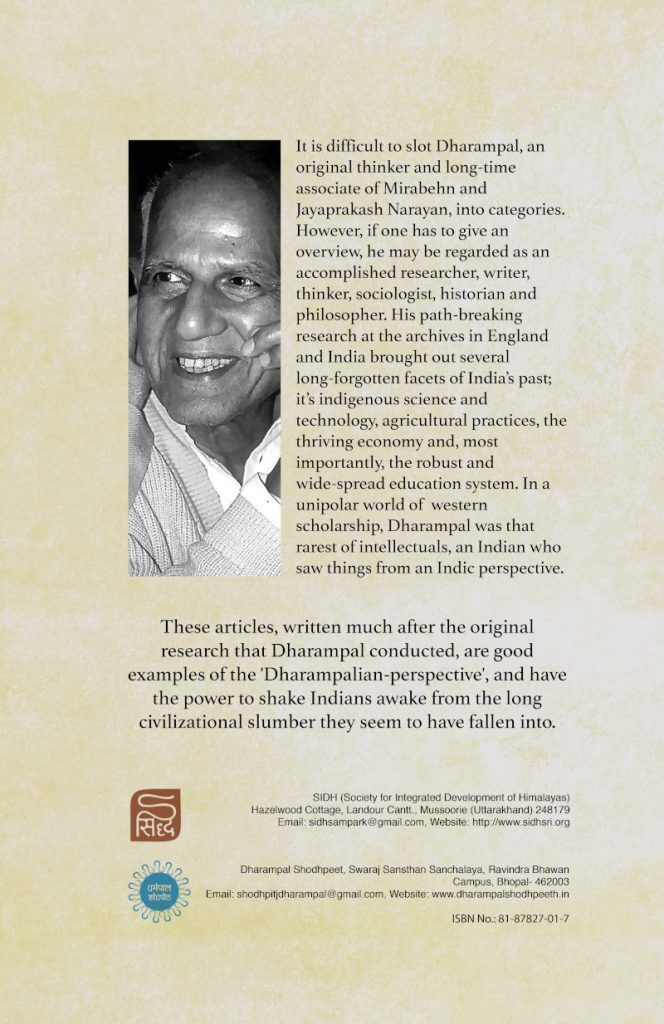
I have been carefully going through the ‘Rediscovering India’ document before we send it for typesetting and printing. I started copying out paragraphs that I thought were hard-hitting and am now having trouble selecting 500 words for this blog post. I have 9500 words to choose from. 🙂
Take a look…
“While there can be some controversy about the prosperity or poverty of the Indian people, or any segments of them during the sixteenth, seventeenth, and eighteenth centuries, the term backwardness does not in any sense apply to them then. Rather, it was the newly arrived Europeans in India who felt that the Indians applied such an appellation to them (the Europeans) for their manners and greed which were considered barbaric and uncouth, about the color of their skin which was thought to be diseased, or even the system of dowry which is said to have obtained in eighteenth century England, but to have been looked askance in eighteenth century India. By the end of the eighteenth century when large parts of India had effectively been conquered and subdued the tide obviously changed and instead the term “backwardness” or images of similar nature began to be deliberately and extensively applied to Indian society.”
– From the chapter titled ‘A question of backwardness’
“Those who have become Westernized – the Western type of commodities may be used by a very large number of people, but those whose minds have been Westernized – I think are not more than half a percent of us. Probably less, basically not more than half a million people – the officer class in the European sense of the term, which could mean scholars, administrators, army personnel, high dignitaries, managers of industry, etc. And those who are completely lost, among these half a million wouldn’t be very many, maybe a few thousand or so – the rest I think can be brought back by a movement backed by spirit and courage and hope.
“Such a movement, however, has to be of much greater dimensions and inner energy than even the freedom movement under Mahatma Gandhi. It may not be pan-India, it could be initially a regional thing, because if we are going to wait for the spark to be all over India, then we would be waiting for many generations. The spark may arise in some corner of Tamil Nadu or in Bihar or anywhere, or in areas where movements like that of Swadhyaya have made visible impact during the past three to four decades, wherever there is this feeling of ‘What happened to us’, ‘We have got lost’, ‘Let’s stand up, do something’.”
– From the chapter titled ‘Five hundred years of western domination’
“What seems to have disturbed Mahatma Gandhi most during his early contact with Europe, was the manner in which the civilisation of Europe, especially of Britain, treated its own people, how it eroded their individual dignity as human beings, how it subordinated them to powerful hierarchical systems, rather than the damage done by Europe to his own country. The latter he could oppose as a patriot but the former violated his humanity. It is this former aspect which seems to have decided for him that his own country and anyone else who would listen to him should have nothing to do with such a civilisation at any stage. Yet, he failed to impart this understanding to men like Pandit Jawaharlal Nehru.”
– From the chapter titled ‘The common grounds of slavery and modern science’
One reply on “Rediscovering India – Excerpts”
Great highlights, very inspirational. Thank you